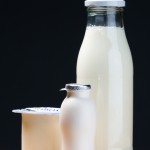
Probiotics are considered to have a positive health benefits and a number of studies have investigated potential benefits on oral health with their use. Dairy products are considered to have potential as a probiotic food because of the presence of casein, calcium and phosphate. A potential use of probiotics may be to manipulate the microorganisms in the oral microbiota. However the mechanism by which they exert their influence is unknown and controversial.
The aim of this review was to assess whether probiotic containing dairy products had beneficial effects on oral health.
Methods
Searches were conducted in the Medline/PubMed,Scopus, Cochrane Library , Web of Science, VHL and OpenGrey databases with no restrictions. Randomised controlled trials (RCTs) in adults/children comparing consumption of probiotic containing dairy products against dairy products without probiotics for oral health were considered.
Two reviewers independently selected studies and extracted data with risk of bias being assessed using the Cochrane tool. The influence of probiotics on Streptococcus mutans (SM), Lactobacillus spp. (LB), and yeast counts, plaque index, and salivary pH were assessed. Meta-analysis was conducted.
Results
- 32 studies were included.
- 8 studies used milk or fermented milk
- 9 studies used yogurt
- 4 studies used cheese
- 5 studies used curd
- 2 studies used kefir
- 3 studies used ice cream
- 1 study used Espar as the matrix.
- Most of the studies used same matrix as the intervention group without the probiotic as a control. Bifidobacterium and Lactobacillus rhamnosus were the most frequently used probiotic microorganisms.
- Only 2 of the included studies were at low risk of bias in all of the Cochrane tool elements, 7 studies had at least one are of high risk with the remaining studies having at least one elements at unclear risk of bias.
- 24 studies contributed to the meta-analysis
- For dichotomous results, individuals who consumed probiotics exhibited
- decreased scores in S.Mutans (SM) concentrations (RD 0.15 [0.02, 0.28] p = 0.03, I2 = 70%),
- No change was observed for lactobacillus (LB) (RD 0.10 [- 0.03, 0.23] p = 0.13, I2 = 94%)
- No change in yeast levels (RD 0.05 [- 0.02, 0.12] p = 0.7, I2 = 48%).
- For continuous analysis,
- both probiotic and control groups presented similar results for SM and LB (MD - 0.55 [- 1.16, 0.07] p = 0.08, I2 = 62%, and RD 0.10 [- 0.03, 0.23] p = 0.13, I2 = 94%, respectively).
- The consumption of probiotics increased salivary pH (MD 0.20 [0.04, 0.35] p = 0.01, I2 = 46%) and
- plaque index (MD 0.38 [0.11, 0.65] p = 0.005, I2 = 0%).
- The probiotic milk reduced SM (MD - 0.59 [- 0.96, - 0.22] p = 0.002, I2 = 0%), and
- the probiotic yogurt decreased LB counts (RD 0.35 [0.19, 0.51] p < 0.0001, I2 = 0%).
- For dichotomous results, individuals who consumed probiotics exhibited
Conclusions
The authors concluded: –
consumption of dairy products containing probiotics seems to be an auxiliary method positively affecting the microbial ecology of the oral biofilm and the development of caries. Finally, future studies need to focus on determining the best vehicle, the most effective probiotic bacteria, the ideal probiotic concentration, and the ingestion frequency.
Comments
The authors have conducted a broad search strategy for studies to address this question. While 32 studies were included, they were mainly small in size and of short duration with only two studies being considered to be at low risk of bias. A wide range of dairy products were used to deliver the probiotics and none of the meta-analysis conducted included more than 4 studies. So, while the review suggests a positive impact on SM levels and salivary pH it remains to be seen whether these changes are of any clinical importance. Larger well-conducted and reported studies of longer duration are needed to assess not just clinical effectiveness but cost-effectiveness of probiotics for improving oral health.
Links
Primary Paper
Nadelman P, Magno MB, Masterson D, da Cruz AG, Maia LC. Are dairy products containing probiotics beneficial for oral health? A systematic review and meta-analysis. Clin Oral Investig. 2018 Nov;22(8):2763-2785. doi:10.1007/s00784-018-2682-9. Epub 2018 Oct 9. Review. PubMed PMID: 30298454.
Original review protocol on PROSPERO
Other references
